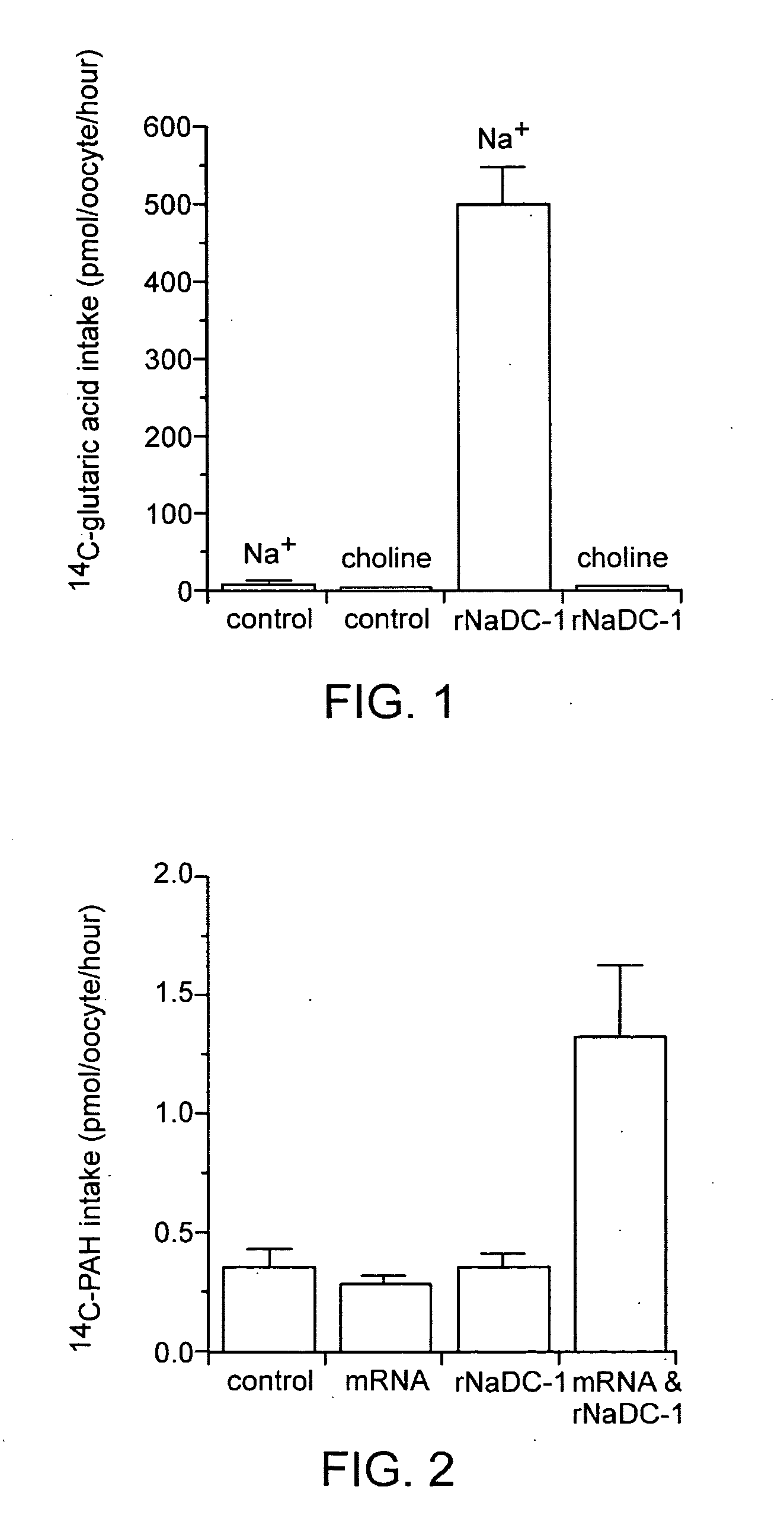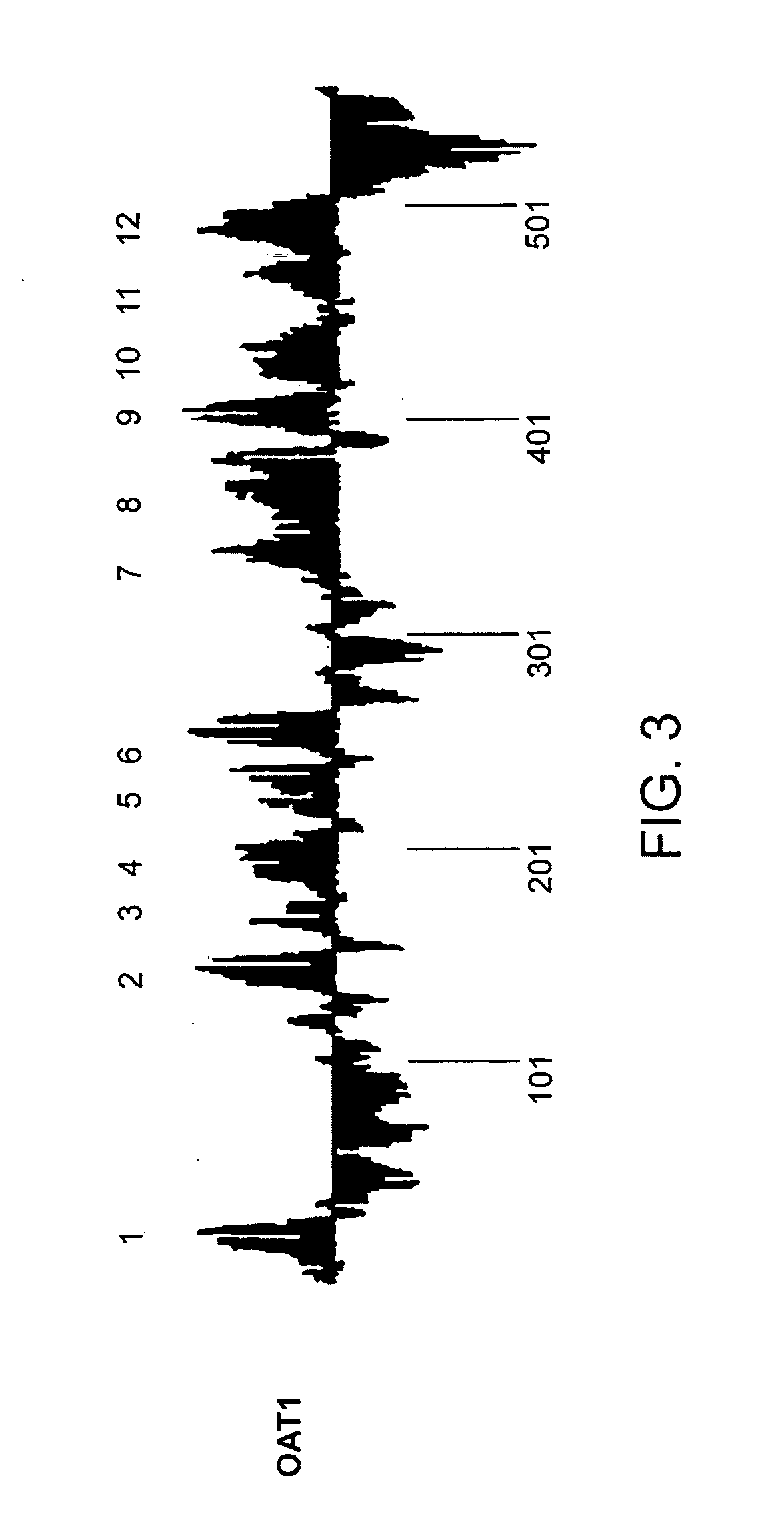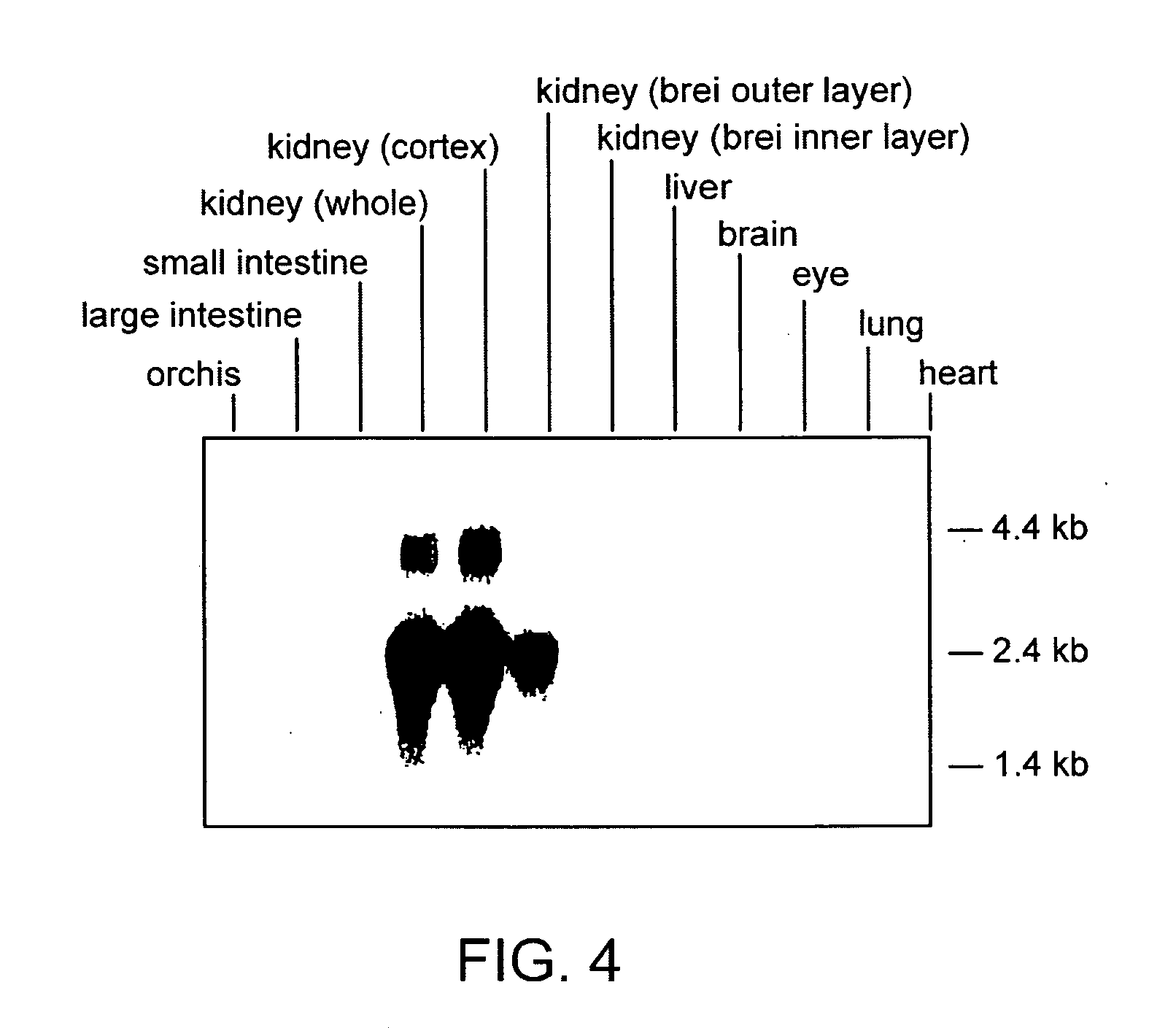Organic anion transporter and gene coding for the same
a technology of organic anion transporter and gene, applied in the field of genes and their encoding polypeptides, can solve the problems of limitations in the previous techniques for precise analysis of organic anion transpor
- Summary
- Abstract
- Description
- Claims
- Application Information
AI Technical Summary
Benefits of technology
Problems solved by technology
Method used
Image
Examples
example 1
Cloning of rat Organic Anion Transporter
(1) cDNA Cloning of Rat Sodium-Dicarboxylate Co-Transporter (rNaDC-1), and the Preparation of rNaDC-1 cRNA
[0057] A non-directional cDNA library was prepared from rat kidney poly(A)+ RNA using commercially available kit (Superscript Choice system, GIBCO BRL) and was ligated to λZipLox EcoRI arms (GIBCO BRL). A PCR product corresponding to nucleotides 1323 1763 of the rabbit sodium dicarboxylate transporter (NaDC-1) (Pajor, A. M. (1995) J. Biol. Chem. 270, 5779-5785 ) was labeled with 32P-dCTP. A rat cDNA library was screened with this probe at low stringency. Hybridization was done overnight in the hybridization solution at 37° C. and filters were washed finally at 37° C. in 0.1×SSC / 0.1% SDS. The hybridization solution contains 5×SSC, 3×Denhardt's solution, 0.2% SDS, 10% dextran sulfate, 50% formamide, 0.01% Antifoam B, 0.2 mg / ml denatured salmon sperm DNA, 2.5 mM sodium pyrophosphate and 25 mM MES, pH 6.5. cDNA inserts in positive λZipLox p...
example 2
Functional Characterization of Organic Anion Transporter 1 (OAT1)
(1) The Effect of the Preincubation of Glutarate on the Transport Activity of OAT1
[0077] The effect of the preincubation of glutarate was investigated in the uptake experiment using the oocytes expressed with OAT1.
[0078] The uptake experiment using PAH was performed as described in the methods of EXAMPLE 1-(2). Oocytes injected with rat OAT1 cRNA only, or both rat OAT1 and rNaDC-1 cRNA were incubated in the ND96 solution containing 14C-PAH for 1 hour after preincubated them in the ND96 solution with and without 1 mM of glutarate.
[0079]FIG. 5 shows the dependence of OAT 1-mediated 14C-PAH uptake on the intracellular dicarboxylate (glutarate) concentration. The rate of 14C-PAH uptake by oocytes via OAT1 is increased by preincubation of the oocytes with 1 mM glutarate. When oocytes co-expressing rNaDC-1 and OAT1 are preincubated with glutarate, hey showed a further increase in the rate of 14C-PAH uptake. This trans-s...
example 3
Cloning of the Human Organic Anion Transporter
[0091] Using rat OAT1 cDNA obtained in EXAMPLE 1-(2), human cDNA library was screened. Human cDNA library was constructed from human kidney poly (A)+ RNA (Clontech).
[0092] Sequence of the isolated cDNA clone (human OAT1 cDNA) was determined according to the methods described in Example 1. The coding region of the human OAT1 cDNA and the deduce amino acid sequence was determined as well.
[0093] The sequence of human OAT1 in both nucleotide and amino acid level is shown in the SEQ ID NO 2.
[0094] The sequence homology between rat OAT1 and human OAT1 was approximately 85% and 79%, in amino acid level and nucleotide level, respectively.
Industrial Applicability
[0095] The present invention, organic anion transporter 1 (OAT1) and the gene encoding OAT1 , is considered to be useful to clarify the molecular mechanisms underlying the pharmacokinetics and toxicokinetics, such as the drug elimination and drug-drug interaction. In addition, the s...
PUM
| Property | Measurement | Unit |
|---|---|---|
| pH | aaaaa | aaaaa |
| organic | aaaaa | aaaaa |
| Northern blot | aaaaa | aaaaa |
Abstract
Description
Claims
Application Information
 Login to View More
Login to View More - R&D
- Intellectual Property
- Life Sciences
- Materials
- Tech Scout
- Unparalleled Data Quality
- Higher Quality Content
- 60% Fewer Hallucinations
Browse by: Latest US Patents, China's latest patents, Technical Efficacy Thesaurus, Application Domain, Technology Topic, Popular Technical Reports.
© 2025 PatSnap. All rights reserved.Legal|Privacy policy|Modern Slavery Act Transparency Statement|Sitemap|About US| Contact US: help@patsnap.com



